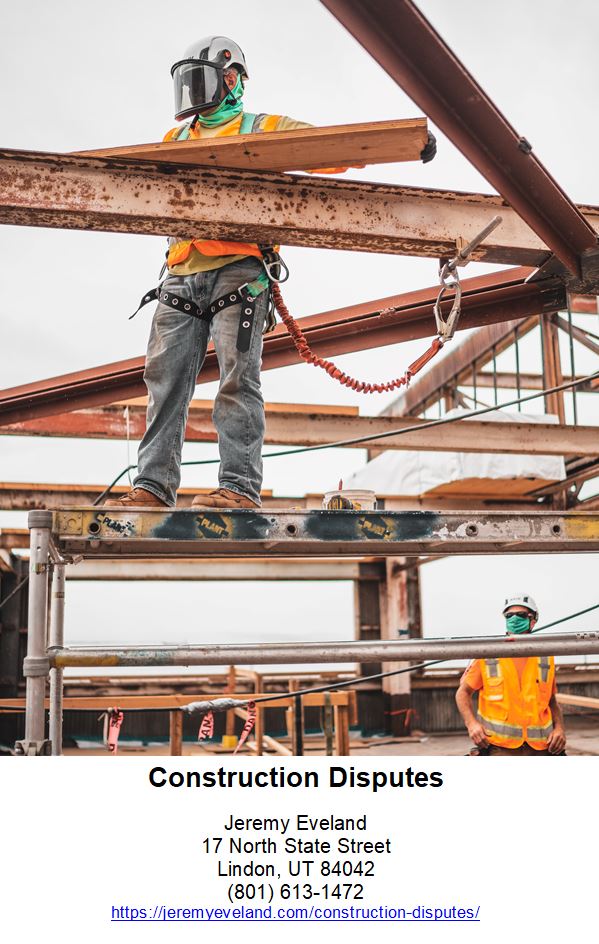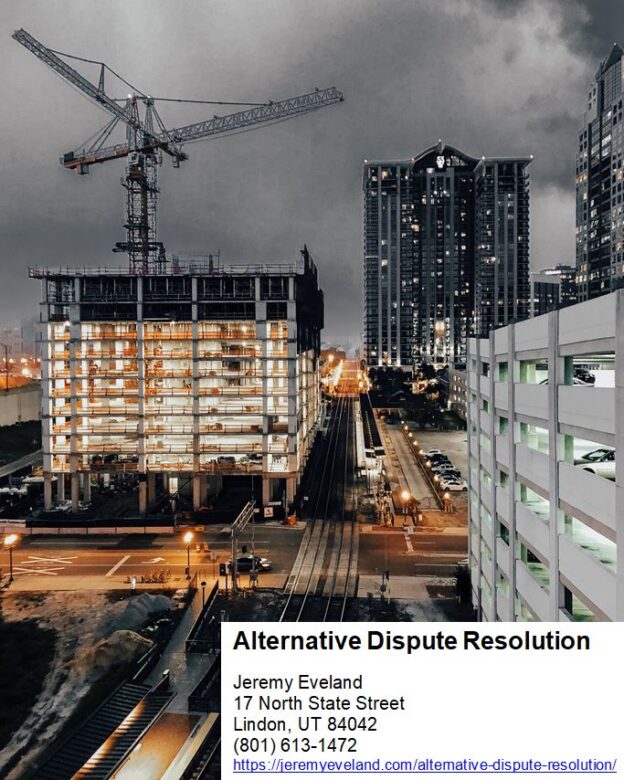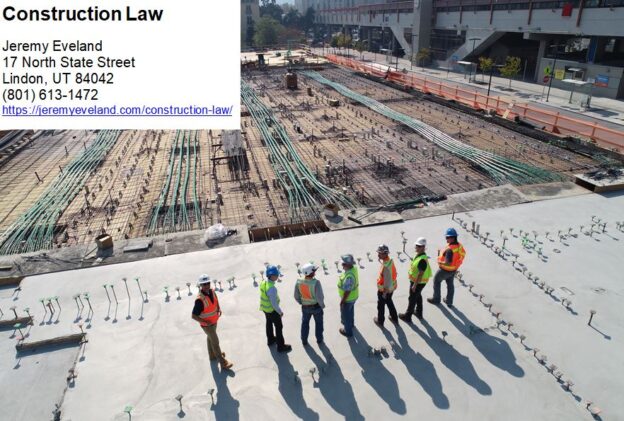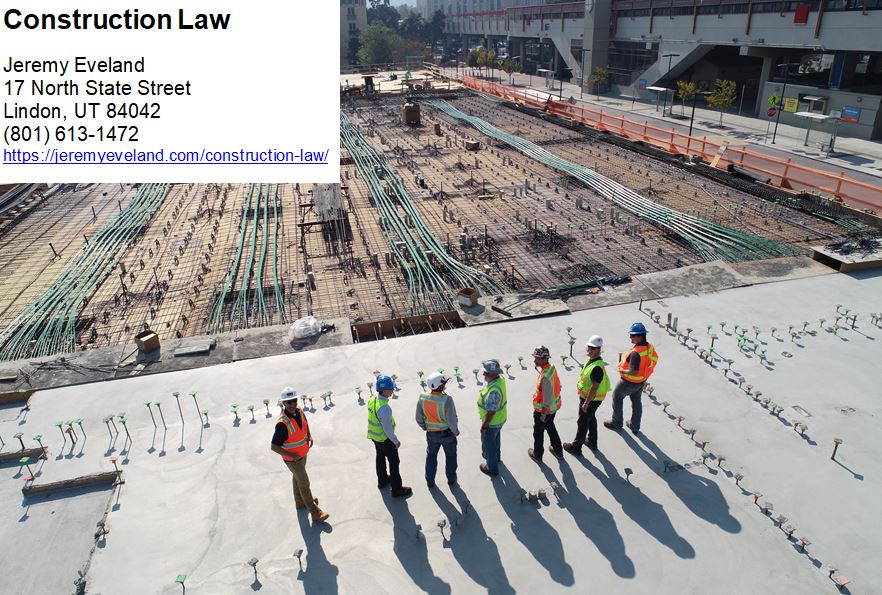Are you feeling overwhelmed or confused about legal matters related to construction projects? Look no further, because a Construction Attorney is here to help! In this article, we will address common legal concerns that arise in the construction industry, providing you with reassurance and guidance. Whether you need assistance with contract disputes, project delays, or potential construction defects, our experienced attorney is just a phone call away. We understand the importance of promptly seeking legal advice, which is why we encourage you to take the next step and pick up that phone. Don’t let legal issues hinder your construction projects any longer; reach out to a Construction Attorney today for the support you need.
What is a Construction Attorney?
Definition
A construction attorney is a legal professional who specializes in providing legal services and advice specifically related to the construction industry. They have a deep understanding of the laws and regulations surrounding construction projects and handle various legal matters that may arise throughout the process. Whether you are a property owner, a contractor, or a subcontractor, a construction attorney can provide the necessary guidance and representation to ensure that your rights and interests are protected.
Scope of Work
The scope of work for a construction attorney is broad and diverse. They are well-versed in different areas of construction law and can handle a wide range of legal issues that may arise during a construction project. From contract review and drafting to dispute resolution and insurance claims, a construction attorney is equipped to handle various legal matters that can impact the progress and success of a construction project. Their expertise covers everything from construction contracts and liens to construction defects and delays.
Importance of Hiring a Construction Attorney
Hiring a construction attorney is crucial for several reasons. Firstly, construction projects involve complex legalities, regulations, and contracts that can be difficult for a non-legal professional to navigate. A construction attorney can ensure that all contracts and agreements are legally sound and protect your rights and interests. Secondly, construction projects often involve a significant investment of time and money. Having a construction attorney on your side helps mitigate risks and provides you with expert guidance to avoid complications and disputes. Lastly, a construction attorney can help resolve any legal disputes that may arise during or after a construction project, saving you time, money, and potential damage to your reputation.
Services Provided by a Construction Attorney
Contract Review and Drafting
One of the primary services provided by a construction attorney is contract review and drafting. Construction contracts are crucial as they establish the legal framework for the project, outlining important details such as scope of work, payment terms, timelines, and dispute resolution procedures. A construction attorney can review existing contracts to ensure they are legally enforceable and protect your interests. They can also draft new contracts that clearly define the rights and obligations of all parties involved, reducing the risk of disputes or misunderstandings.
Dispute Resolution
Disputes are common in the construction industry, whether they involve payment issues, breach of contract, or disagreements over project specifications. A construction attorney is skilled in dispute resolution and can help you navigate through negotiations, mediation, arbitration, or litigation, depending on the situation. They will advocate for your rights and work towards reaching a fair and satisfactory resolution to minimize the impact on the project and your business.
Insurance Claims
Insurance is an essential aspect of construction projects as it provides protection against unforeseen events such as accidents, property damage, or injuries. However, navigating insurance claims can be complex and time-consuming. A construction attorney can assist you in understanding your insurance policies, filing claims, and negotiating with insurance companies to ensure you receive the compensation you are entitled to.
License and Permit Issues
Obtaining the necessary licenses and permits is a critical part of any construction project. Failure to comply with local regulations can result in costly fines, project delays, or even legal consequences. A construction attorney can guide you through the process of obtaining the required licenses and permits, ensuring that all legal requirements are met. They can also assist in resolving any issues related to licensing or permits, helping you avoid unnecessary disruptions to your project.

Legal Issues in Construction
Construction Contracts
Construction contracts form the foundation of any construction project. They outline the rights and responsibilities of all parties involved, including the project owner, general contractor, subcontractors, and suppliers. Legal issues can arise when contracts are poorly drafted, misunderstood, or breached. A construction attorney can review and draft contracts to avoid any ambiguities or loopholes that may lead to disputes down the line. They can also provide guidance on contract negotiation and help enforce the terms of the contract when necessary.
Construction Liens
Construction liens are a legal recourse available to contractors and suppliers who have not been paid for their work or materials. Understanding lien laws and filing a valid lien can be complex, and failure to comply with the procedures and deadlines may jeopardize your ability to collect payment. A construction attorney can guide you through the process of filing a construction lien, ensuring compliance with the applicable laws and maximizing your chances of recovering payment.
Construction Delays and Damages
Construction projects can face unforeseen delays due to various factors, such as weather conditions, labor shortages, or material unavailability. These delays can have a significant impact on project timelines and costs. Additionally, construction defects or damages may arise during or after the project completion. A construction attorney can assist in resolving disputes related to delays, damages, or defects, helping you seek compensation or negotiate solutions.
Construction Defects
Construction defects refer to any design flaws or construction errors that result in the failure of a structure or its components to perform as intended. This can include issues such as faulty plumbing, electrical problems, or structural deficiencies. Construction defects can lead to safety hazards, reduced property value, and increased maintenance costs. A construction attorney can help you navigate through the process of identifying, addressing, and resolving construction defects, whether through negotiation, mediation, or litigation.
Selecting a Construction Attorney
Qualifications and Experience
When selecting a construction attorney, it is essential to consider their qualifications and experience. Look for an attorney who specializes in construction law and has a deep understanding of the industry’s intricacies. Consider their years of experience, track record, and success in handling construction-related legal matters. A well-qualified and experienced attorney will have the knowledge and expertise necessary to provide you with effective legal representation.
Specialization in Construction Law
Construction law is a specialized field that requires specific knowledge and experience. It is crucial to choose an attorney who focuses primarily on construction law rather than a general practitioner. A specialized construction attorney will have a deeper understanding of the legal nuances and complexities unique to the construction industry, ensuring that you receive the best possible legal advice and representation.
Reputation and Track Record
Research the attorney’s reputation and track record within the construction industry. Look for reviews, testimonials, or case studies that demonstrate their ability to handle construction-related legal matters successfully. Choosing an attorney with a solid reputation can provide you with peace of mind, knowing that you are working with a trusted professional who has a history of achieving favorable outcomes for their clients.
Client Testimonials
Reading client testimonials can provide valuable insights into the attorney’s communication style, expertise, and overall satisfaction of their clients. Look for testimonials from clients who have had similar legal issues or challenges in the construction industry. Their feedback can give you a better understanding of what to expect when working with the attorney and help you assess whether they are the right fit for your needs.
How to Work with a Construction Attorney
Open and Honest Communication
Effective communication is vital when working with a construction attorney. Provide them with all the relevant information about your project, including any potential legal concerns or disputes. Be open and honest about your expectations and goals, as this will allow the attorney to provide you with the most accurate legal advice and representation. Regularly communicate with your attorney throughout the project to stay informed and address any emerging legal issues promptly.
Providing Necessary Documentation
To ensure that your construction attorney has all the necessary information to handle your case, it is important to provide them with all relevant documentation. This may include contracts, invoices, correspondence, and any other documents related to the project or legal matter at hand. Timely and complete documentation will help your attorney build a strong case and effectively represent your interests.
Following Legal Advice
Legal advice provided by your construction attorney is based on their expertise and understanding of construction law. It is essential to follow their advice and recommendations to ensure that you are acting in compliance with the law and maximizing your chances of a favorable outcome. Disregarding or ignoring legal advice may have negative consequences for your project or legal dispute.
Maintaining Timelines
Construction projects often have strict timelines that must be adhered to. It is important to work closely with your construction attorney to ensure that all legal processes and deadlines are met. Failure to comply with legal timelines can result in missed opportunities or potential penalties. Regularly review project schedules and legal timelines with your attorney to ensure that everything is on track.
Keeping Records
Keeping detailed records of all interactions, documents, and communications related to your construction project is essential. This includes meeting minutes, email correspondence, change orders, and any other relevant information. These records can serve as evidence in case of a dispute or legal claim. Work closely with your construction attorney to establish a system for record-keeping and ensure that you are storing all important information in a secure and organized manner.
Common Legal Concerns in Construction
Breach of Contract
Breach of contract is a common legal concern in the construction industry. It occurs when one party fails to fulfill the terms of a contract without a legitimate excuse. Whether it is a failure to deliver materials, perform work as specified, or make payments on time, breach of contract can lead to disputes and legal consequences. A construction attorney can help you navigate breach of contract issues, negotiate solutions, and seek appropriate remedies.
Non-payment or Late Payment
Non-payment or late payment is a significant concern for contractors and subcontractors in the construction industry. If you have provided services or materials and have not received payment, a construction attorney can assist you in enforcing your right to payment. They can help you navigate the legal options available to recover the money owed to you, such as filing a construction lien or pursuing legal action.
Construction Defect Claims
Construction defect claims can arise when there are flaws or deficiencies in the design or construction of a project. These defects can result in safety hazards, property damage, or financial losses. A construction attorney can help you identify and address construction defects, whether through negotiations, mediation, or litigation. They will work to protect your rights and seek appropriate compensation for any damages suffered.
Disputes with Contractors or Subcontractors
Disputes between contractors and subcontractors are not uncommon in the construction industry. These disputes can arise from various issues, such as payment disputes, project delays, or disagreements over work quality. A construction attorney can help you navigate these disputes, mediate between the parties involved, and find amicable solutions to protect your interests and maintain the progress of your project.
Violation of Building Codes and Regulations
Compliance with building codes and regulations is crucial in the construction industry to ensure the safety and integrity of structures. Violations of building codes and regulations can lead to serious legal consequences, including fines, project delays, or even project shutdowns. A construction attorney can provide you with guidance on building codes and regulations, help you rectify any violations, and defend your interests in case of legal action.

Benefits of Hiring a Construction Attorney
Expert Legal Advice and Representation
One of the primary benefits of hiring a construction attorney is gaining access to expert legal advice and representation. Construction law is a complex field, and an experienced attorney can provide you with the guidance and insights you need to navigate through legal challenges successfully. They have a deep understanding of construction laws and regulations, keeping you informed of your rights and obligations to help you make informed decisions.
Protecting Your Rights and Interests
A construction attorney acts as your advocate, working diligently to protect your rights and interests throughout the construction process. They will ensure that your contracts are fair and enforceable, minimizing the risk of disputes and legal complications. In case of disputes, your attorney will fight for your rights and represent your best interests to help you achieve a favorable outcome.
Ensuring Compliance with Laws and Regulations
Compliance with laws and regulations is crucial in the construction industry. A construction attorney will ensure that you are in compliance with all legal requirements, from licensing and permitting to environmental regulations and safety standards. By keeping you informed and guiding you through the legal landscape, your construction attorney will help you avoid costly fines, penalties, and legal consequences.
Efficient Management of Legal Processes
Legal processes can be time-consuming and complex, often involving various documents, deadlines, and procedures. By hiring a construction attorney, you can entrust the management of these legal processes to a legal professional, freeing up your time and resources to focus on your construction project. Your attorney will handle all the necessary paperwork, negotiations, and litigation, ensuring that your legal matters progress efficiently and effectively.
Maximizing Compensation and Recovery
In the event of a dispute or legal claim, a construction attorney will work diligently to maximize your compensation and recovery. Whether it involves pursuing payment for your services, seeking damages for construction defects, or resolving insurance claims, your attorney will employ their expertise and negotiation skills to obtain the best possible outcome for you. They will fight for your rights and ensure that you are adequately compensated for any losses or damages suffered.
How to Find a Construction Attorney
Online Directories and Websites
Online directories and websites are a great starting point when searching for a construction attorney. These platforms provide comprehensive listings of attorneys specializing in construction law, allowing you to browse through their profiles and areas of expertise. Look for directories that include client reviews and ratings to get a better understanding of an attorney’s reputation and track record.
Referrals from Friends and Colleagues
Seeking referrals from friends, colleagues, or others in the construction industry can be an effective way to find a reliable construction attorney. People who have worked with construction attorneys in the past can provide valuable insights into the attorney’s abilities, communication style, and success rate. Ask for recommendations from individuals you trust and who have had positive experiences with construction attorneys.
Bar Associations and Legal Networks
Bar associations and legal networks are excellent resources for finding reputable construction attorneys. These organizations typically have directories or referral services that connect individuals with qualified attorneys in their area. Additionally, bar associations often have specialized sections or committees dedicated to construction law, helping you find attorneys who have a specific focus in the field.
Consultation and Initial Assessment
Once you have identified potential construction attorneys, schedule consultations to assess their qualifications and compatibility with your needs. Many attorneys offer initial consultations free of charge, allowing you to discuss your legal concerns, assess their expertise, and get a sense of their communication style. Use this opportunity to ask relevant questions and determine if the attorney is the right fit for your project.

Choosing a Construction Attorney on a Budget
Payment Plans and Fee Structures
Construction projects often come with budget constraints, and legal expenses can add to the financial burden. When seeking a construction attorney on a budget, inquire about payment plans or alternative fee structures offered by the attorney. Some attorneys may be willing to work on a contingency basis, taking a percentage of any successful recovery, or offer flexible payment options to accommodate your financial situation.
Exploring Alternative Dispute Resolution Methods
Litigation can be expensive and time-consuming. If you are on a budget, consider exploring alternative dispute resolution methods such as mediation or arbitration. These methods can be more cost-effective and efficient than traditional litigation, potentially saving you money on legal fees. Discuss these options with your construction attorney to determine if they are suitable for your situation.
Consulting Multiple Attorneys for Comparison
To ensure that you find the best fit for your budget and legal needs, consider consulting multiple construction attorneys for comparison. Each attorney may have different pricing structures or fee arrangements, so obtaining quotes from several attorneys allows you to evaluate and compare their services and associated costs. Remember to consider the attorney’s expertise and track record in addition to their pricing.
Negotiating Legal Fees and Expenses
Don’t be afraid to negotiate legal fees and expenses with your construction attorney. While some fees may be non-negotiable, others may be open to discussion. Be upfront about your budget constraints and inquire about any potential cost-saving measures or opportunities for reduced fees. Your attorney may be willing to accommodate your budget within reason or provide alternative solutions to make their services more affordable.
Conclusion
Importance of Legal Assistance in Construction
Navigating the legal complexities of the construction industry can be challenging and risky without the guidance of a construction attorney. From contract review and drafting to dispute resolution and compliance with laws and regulations, a construction attorney plays a crucial role in protecting your rights and interests. By securing expert legal advice and representation, you can mitigate risks, resolve disputes, and ensure the success of your construction projects.
Taking Prompt Action for Legal Support
When it comes to legal matters in construction, taking prompt action is essential. Contacting a construction attorney at the earliest sign of a legal concern can help mitigate potential risks and complications. Delaying legal support may limit your options for resolution and increase the likelihood of adverse consequences. Don’t hesitate to reach out to a construction attorney to discuss your situation and explore the available legal remedies.
Call-to-Action for Consultation
If you are in need of legal assistance for your construction project, call [Phone Number] to schedule a consultation with our experienced construction attorneys. Our team is dedicated to providing you with the expert guidance and representation you need to navigate the legal complexities of the construction industry. Take the first step towards protecting your rights and ensuring the success of your construction project by calling our office today.










